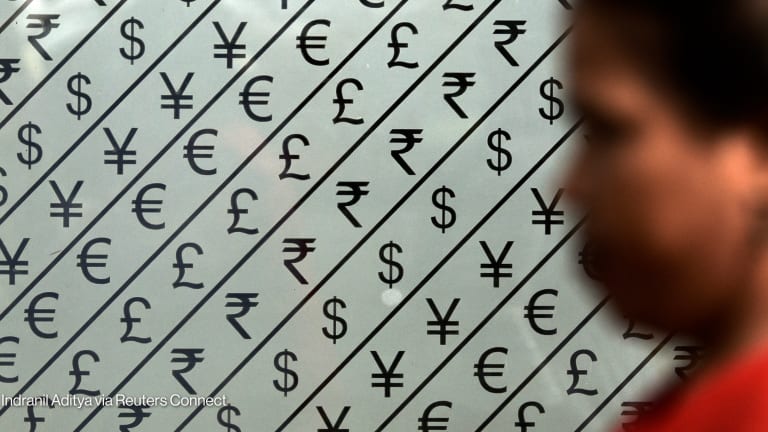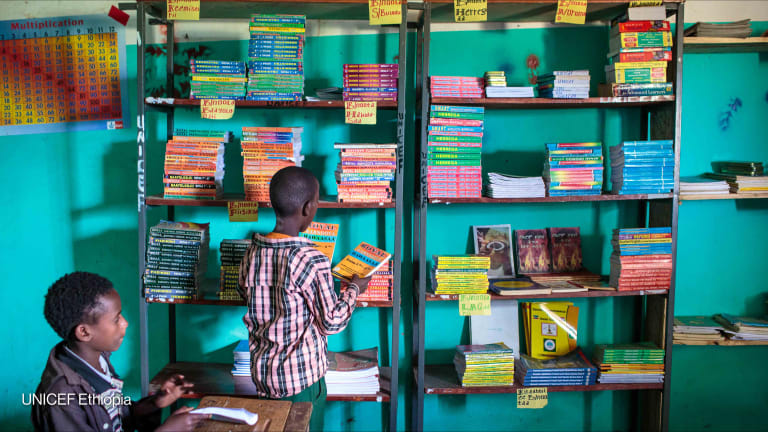EuropeAid: What are the funding trends in the first half of 2017?
Devex rounds up EuropeAid's funding trends so far this year.
The European annual summit on development last week saw the signing of the new EU Consensus on Development, alongside strong discussion of the EU’s potential leadership role on key issues such as climate action and women’s rights, as the U.S. — the world’s biggest bilateral aid donor — takes a step back. Just yesterday, the European Commission announced 143 million euros of development aid for the crises in North East Nigeria, including 123 million euros from the European Development Fund and 20 million euros from the EU Trust Fund for Africa (for which the operational documents are yet to be published). Building on our previous data explorations, Devex is continuing to analyze EuropeAid’s planned funding activities. Details of 5.6 billion euros worth of EuropeAid early-stage funding commitments published since Jan. 2016 can now be found in our interactive dashboard. The dashboard will be updated on a monthly basis with the latest funding approvals. With some of the earlier funding programs likely to be already under way, you can now also filter activities by publication year, as well as exploring them by region, country, sector and management agency. The management agency table is linked to our Funding Activity Feed, where you’ll find more details on each activity. Click here to read more about our methodology, or here for our guide to how EuropeAid operates. The dashboard details funding commitments made since Jan. 2016. But what has been planned so far in 2017? 2017: The year so far Devex’s analysis is based on “Action Fiches” — operational documents specifying how a program will be implemented and through which aid modality the budget will be disbursed. These documents are usually attached to European Commission funding approval documents, but they are not always publicly available at the same time. As a result, you might find funding approved back in 2016 included in our 2017 dataset. From the beginning of the year until the end of May, EuropeAid published 72 Action Fiches, detailing 261 activities worth 1.15 billion euros in total. The key sectors were governance and institutional development (320 million euros), economic development (204 million euros) and social development (139 million euros). In terms of regional distribution, Africa has the largest amount of planned funding so far this year, with 506 million euros, 55 percent of which comes from the European Development Fund. This is largely due to the 2016 annual program for Tanzania, which provides 255 million euros to be invested in improving tax collection and public finance management (52 million euros) and electricity access in rural areas (203 million euros). Most of this funding is directly managed by the European Commission, with the exception of 2.2 million euros managed by DANIDA, which is also contributing to the tax modernization program with an additional 9.5 million euros. The rest of the funding from the EDF — 26.5 million euros — is being directed to support democratic governance in Nigeria, a program that will run from 2017 until 2021 on the recommendations of the EU Election Observation Mission, following Nigeria’s 2015 general elections. The EU Emergency Trust Fund for Africa has programmed 78.3 million euros in funding this year, including 59 million euros for the Horn of Africa window announced in April. The other 19.3 million euros are set for the North Africa region. They include a monitoring and evaluation technical cooperation facility and a south-south cooperation migration project called Mediterranean City-to-City Migration. The Latin America and Caribbean region has been allocated 371 million euros in planned funding from the budgets of the Development Cooperation Instrument and the European Development Fund. EuropeAid released most of the Action Fiches for this region in March 2017, although the commission already approved many of the decisions in 2016. More than 60 percent of these activities will be directly managed by the European Commission, with the Inter-American Development Bank and the United Nations High Commissioner for Refugees leading the few indirect agreements that have been planned. The IADB is managing a border integration program in Nicaragua, with the EU contributing 20 million euros, the IADB financing a loan for 50 million euros ($55 million), and the government of Nicaragua contributing a further 2.45 million euros ($2.7 million). UNHCR is managing a 700,000 euro program on the enhancement rights and protection for forcibly displaced children and adolescents in Guatemala, Honduras and El Salvador. The biggest projects programmed in Asia are a 26 million euro fisheries project in Cambodia, CaPFish Aquaculture, managed mostly by the Agence Francaise de Developement; and a 21.5 million euro contribution to a horticulture development project in Uzbekistan. The total cost is expected to be more than $180 million, mostly funded by the World Bank. Check out more practical business and development advice online, and subscribe to Money Matters to receive the latest contract award and shortlist announcements, and procurement and fundraising news.
The European annual summit on development last week saw the signing of the new EU Consensus on Development, alongside strong discussion of the EU’s potential leadership role on key issues such as climate action and women’s rights, as the U.S. — the world’s biggest bilateral aid donor — takes a step back.
Just yesterday, the European Commission announced 143 million euros of development aid for the crises in North East Nigeria, including 123 million euros from the European Development Fund and 20 million euros from the EU Trust Fund for Africa (for which the operational documents are yet to be published).
Building on our previous data explorations, Devex is continuing to analyze EuropeAid’s planned funding activities. Details of 5.6 billion euros worth of EuropeAid early-stage funding commitments published since Jan. 2016 can now be found in our interactive dashboard.
This story is forDevex Promembers
Unlock this story now with a 15-day free trial of Devex Pro.
With a Devex Pro subscription you'll get access to deeper analysis and exclusive insights from our reporters and analysts.
Start my free trialRequest a group subscription Printing articles to share with others is a breach of our terms and conditions and copyright policy. Please use the sharing options on the left side of the article. Devex Pro members may share up to 10 articles per month using the Pro share tool ( ).
Arnau Rovira is the knowledge management lead at Devex’s Analytics implementing information management solutions to the different data needs of the organization. He works remotely from Burundi. Previously, he worked in data collection management in Manila and as business intelligence analyst at Scytl, worldwide leader on electoral voting solutions. In his interest to the international and electoral affairs, he became an electoral observer. Until now, he has been deployed in Uruguay, Ukraine and Bosnia and Herzegovina.
Raquel Alcega leads the data research and analysis at Devex, providing advice to organizations on the latest funding and programmatic trends that shape the global development space. She also heads up the news business content strategy and designs internal knowledge management processes. Prior to joining Devex’s Barcelona office, she worked in business development in Washington, D.C., and as a researcher in Russia and Mexico.









